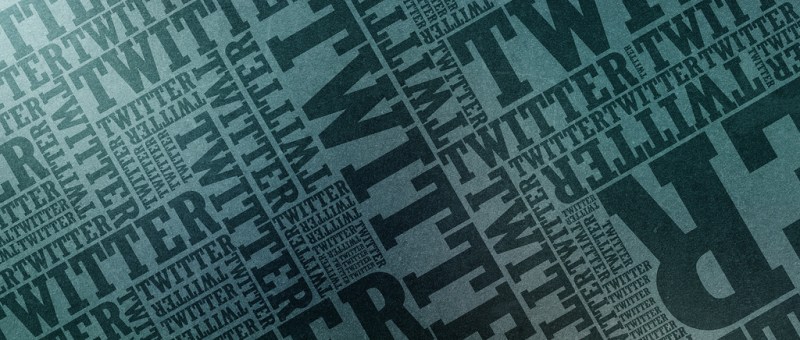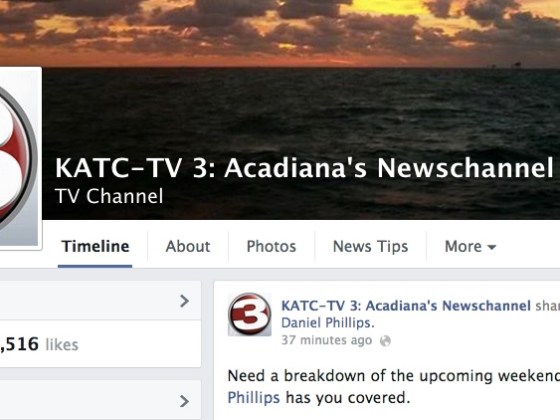Before anyone knew who would take the presidency in 2o12, it was clear that Twitter had emerged as an important tool for politicians and the journalists who covered them.
During the 2012 presidential election, political campaigns jumped into social media and began using the platform to get their messages directly to the voters.
Journalists used Twitter to cover the candidates in real time as news feeds transformed into an infinitely scrolling mass during the most heightened events. Twitter capitalized on these conversations by creating the Twitter Political Index, billing it as another tool, similar to polling, to analyze public sentiment about the candidates.
That was also when Mark Coddington, a doctoral candidate at the University of Texas at Austin, began analyzing tweets from political journalists. Wanting to examine how social media might change campaign reporting, he found journalists were still repeating what candidates said without checking the facts.
Real-time fact-checking on Twitter
During the presidential debates, Coddington and his colleagues observed Twitter users doing real-time fact-checking of candidates’ claims. The scholars, including Logan Molyneux and Regina Lawrence, were curious about whether Twitter was changing the way journalists reported the debates, particularly because of the fact-checking. Their work was published in the International Journal of Press/Politics.
Examining tweets from 430 political reporters and commentators, they found that 60 percent simply repeated a candidate’s claims. Although some journalists and pundits used the platform to comment, these were mostly assertions, with no facts cited to back them up.
Most journalists simply repeated what candidates said rather than fact-check their claims.
“When you look at previous research on political journalism, they have pretty well established norms and routines, and they don’t really like to upset those things,” Coddington said.
Although Twitter didn’t inspire a stream of real-time fact-checking in 2012, two political journalists — Matt Vasilogambros and Olivia Nuzzi — identified other ways that social media, particularly Twitter, affects the way they do their jobs.
“The beast that is Twitter”
Matt Vasilogambros has covered Washington politics for the National Journal for three years.
“When I was in college, we were just understanding how Twitter can be used for journalism,” he explained in an email. “A few years later, and after several mistakes, we’re only truly comprehending the beast that is Twitter.”
Olivia Nuzzi covers politics for The Daily Beast.
“It affects how I digest news,” Nuzzi said. “I am on Twitter all day. It’s where I see breaking stories, and where I am linked to stories from different publications I might not actively go to on my own. Often, an idea that begins as a tweet will contribute to a story, or will become a story itself.”
Twitter has worked its way into both reporters’ daily routines.
“I have two screens at my desk — my laptop and an attached monitor — and Twitter is always up and streaming,” Vasilogambros said. “It’s where news breaks. It’s where I see what my colleagues are working on — and it’s also a place where I reach out to sources and get fresh ideas.”
An example he gives is about a story he first tuned in to on Twitter that later went viral. A Boston Globe reporter had tweeted polling results for the U.S. Senate race in New Hampshire. Vasilogambros dived into the polling data and discovered that New Hampshire voters were already identifying Mitt Romney as a front-runner for the Republican presidential nomination in the upcoming presidential race in 2016.
“No one had reported this out, so I wrote it up,” he said.
No one is above reproach
Nuzzi said Twitter’s ability to democratize is powerful.
“Nobody on Twitter is above criticism — whether they write for their own Blogspot or they write for The New York Times,” she said. “Institutional credibility matters less than on traditional platforms — and speed, sharpness and accuracy matter more.”
The platform is not without its own problems. Vasilogambros said. Twitter encourages over-reliance on breaking-news coverage of small stories, while ignoring investigative work that breaks out of the Washington bubble.
“While it is absolutely excellent for publications that are actually breaking news and not reporting something that everyone just got in a press release, it hurts journalism and information-sharing for the most part,” Vasilogambros said. “It can trivialize serious issues when reporters, who want to have a voice or make a name for themselves, say something dumb to get attention.”
Opinion and snark get more attention, he said, so there’s little incentive to do serious work like real-time fact-checking.
“Tweeting out Rick Perry’s ‘oops’ moment is a lot sexier than challenging his stance on shutting down the Department of Education,” he said.







1 comment
Excellent article.
Comments are closed.